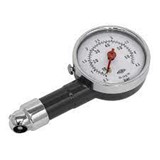Share prices in Australia and Japan made partial recoveries on Wednesday after markets globally suffered steep losses on fears of an worsening nuclear crisis in the wake of Friday's earthquake and tsunami in northern Japan.
Prime Minister Julia Gillard refused to comment on market movements, saying it was too early to make predictions about the economic impact from Japan's disaster, either globally or on Australia.
"As the third largest global economy and a major trading partner, these tragic events in Japan will inevitably have an impact on the global economy and here at home," Gillard told reporters in Canberra.
"At this stage, we are certainly not making any dire predictions of the impact on our own economy."
Japan is Australia's second largest trading partner after China, with coal and LNG accounting for 50 per cent of exports there.
Although this would appear to make Australia vulnerable to the impact of the disaster on the Japanese economy, Nomura Australia chief economist Stephen Roberts says he expects it will prove resilient.
"Coal and LNG exports ... are likely to experience stronger demand from Japan in the short term on substitution of non-nuclear fuels to help replace the lost generating capacity at the damaged Fukushima nuclear facilities," Roberts said.
He is keeping a 3.3 per cent Australian growth forecast for 2011, but sees the risk of an even better outcome to his 3.8 per cent prediction for 2012 as Japan subsequently recovers and demand for non-nuclear energy increases sharply.
Panic selling of shares, as investors sought the relative safety of government bonds, eased on Wednesday, but pricing on the futures market still suggested that the Reserve Bank of Australia (RBA) is more likely to cut interest rates than lift them.
This is contrary to what economists are forecasting, and what the central bank would have you believe.
Commonwealth Bank chief economist Michael Blythe said rapid, large market moves as seen on Tuesday have more to do with sentiment than changes in the underlying fundamentals.
"The problem at the moment is that the information flow is patchy, partly sensationalist and sometimes contradictory," Blythe said.
"It is not an environment where the fundamentals matter and markets will price accordingly."
Still, Australian economic data on Wednesday was hardly conducive to swing the market back to predicting a rate rise this year.
Home building commencements dropped by a seasonally adjusted 5.3 per cent in the final three months of 2010 to 37,897 dwellings, the smallest quarterly number since September 2009.
Leading indicators of home construction, such as building approvals, suggest the sector will remain weak in 2011.
The Housing Industry Association called the result "underwhelming", and again called on all levels of government to make new housing a high priority.
At the same time, a leading indicator of future economic activity suggested economic growth is likely to slow over the next three to nine months as a result of the spate of natural disasters since December.
The annualised rate of the Westpac-Melbourne Institute leading index was 3.5 per cent in January, down from the 4.6 per cent in December and nine per cent rates recorded early last year.
It was the first reading to take in the impact from the floods across the eastern seaboard in late December to early January.














-160x160-state_article-rel-cat.jpg)

